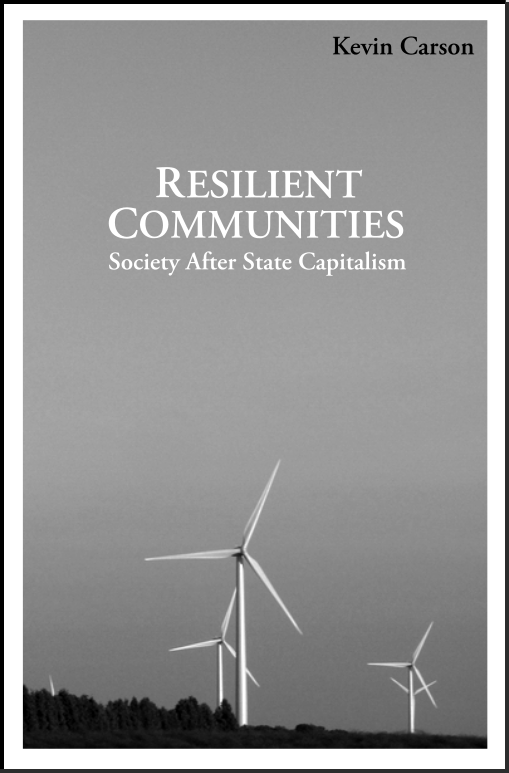There’s a lot of debate in libertarian circles on such things as the value and proper role of electoral politics, and whether we should attempt to change the laws from within the system. On one email discussion list I frequent, the LeftLibertarian2 yahoo group, such a debate was recently sparked by Michael Bindner of Christian Left, who argued for the necessity of one big movement of libertarians and decentralists—in order, among other things, to realistically address the existence of the state, and to achieve liberty for everybody instead of leaving some behind.
On the value of political efforts as such, I’m agnostic or even mildly favorable. Running for office as an educational effort (and anybody who sees a Libertarian or Green candidacy at the national level as anything but an educational effort needs more help than I can give them) can expose the public to new ideas and encourage people to question the conventional wisdom they hear from the major party candidates. Pressure groups lobbying to scale back the most harmful kinds of state action (a good example is political action by the Electronic Frontier Foundation to scale back the digital copyright regime) can sometimes be effective. But I don’t see any sense in libertarians attempting to secure positions inside the state with a view to “fighting the system from within.” Organized effort to pressure the state from the outside and scale back oppressive laws may be worth something—so long as it’s seen as a secondary effort, a way of running interference on behalf of the counter-institutions whose building should be our primary effort.
And the focus on securing liberty primarily through political organization—organizing “one big movement” to make sure everybody is on the same page, before anyone can put one foot in front of the other—embodies all the worst faults of 20th century organizational culture. What we need, instead, is to capitalize on the capabilities of network culture. Network culture, in its essence, is stigmergic: that is, an “invisible hand” effect results from the several efforts of individuals and small groups working independently. Such independent actors may have a view to coordinating their efforts with a larger movement, and take the actions of other actors into account, but they do so without any single coordinating apparatus set over and above their independent authority. In other words, we need a movement that works like Wikipedia at its best, or like open-source product developers who independently tailor modular products to a common platform.
In my opinion the best way to change the laws, in practical terms, is through counter-institution building and through counter-economic activity outside the state’s control: in other words, to render the laws so irrelevant and unenforceable, by our efforts outside the state, that even the state must make concessions to reality.
It seems to me that statism will ultimately end, not as the result of any sudden and dramatic failure, but as the cumulative effect of a long series of little things. The costs of enculturing individuals to the state’s view of the world, and of dissuading a large enough majority of people from disobeying when they’re pretty sure they’re not being watched, will result in a death of a thousand cuts. More and more of the state’s activities, from the perspective of those running things, will just cost more (in terms not only of money but of just plain mental aggravation) than they’re worth. IOW, the decay of ideological hegemony and the decreased feasibility of enforcement will do to the state what file-sharing is doing to the RIAA.
There’s even the real possibility that, even before the total costs become absolutely prohibitive from the standpoint of a net benefit to using the political means over the economic, the elites running things will be eaten from the inside out by a loss of morale. Roderick Long, of the Molinari Institute, further suggests that before it reaches that point, the elites will probably become divided among themselves.
The most cost-effective “political” effort is simply making people understand that they don’t need anyone’s permission to be free. Start telling them right now that the law is unenforceable, and disseminating knowledge as widely as possible on the most effective ways of breaking it. Publicize examples of ways we can live our lives the way we want, with institutions of our own making, under the radar of the state’s enforcement apparatus: local currency systems, free clinics, ways to protect squatter communities from harassment, and so on. Educational efforts to undermine the state’s moral legitimacy, educational campaigns to demonstrate the unenforceability of the law, and efforts to develop and circulate means of circumventing state control, are all things best done on a stigmergic basis.
Translations for this article:
- Spanish, Quitando Relevancia al Estado.








